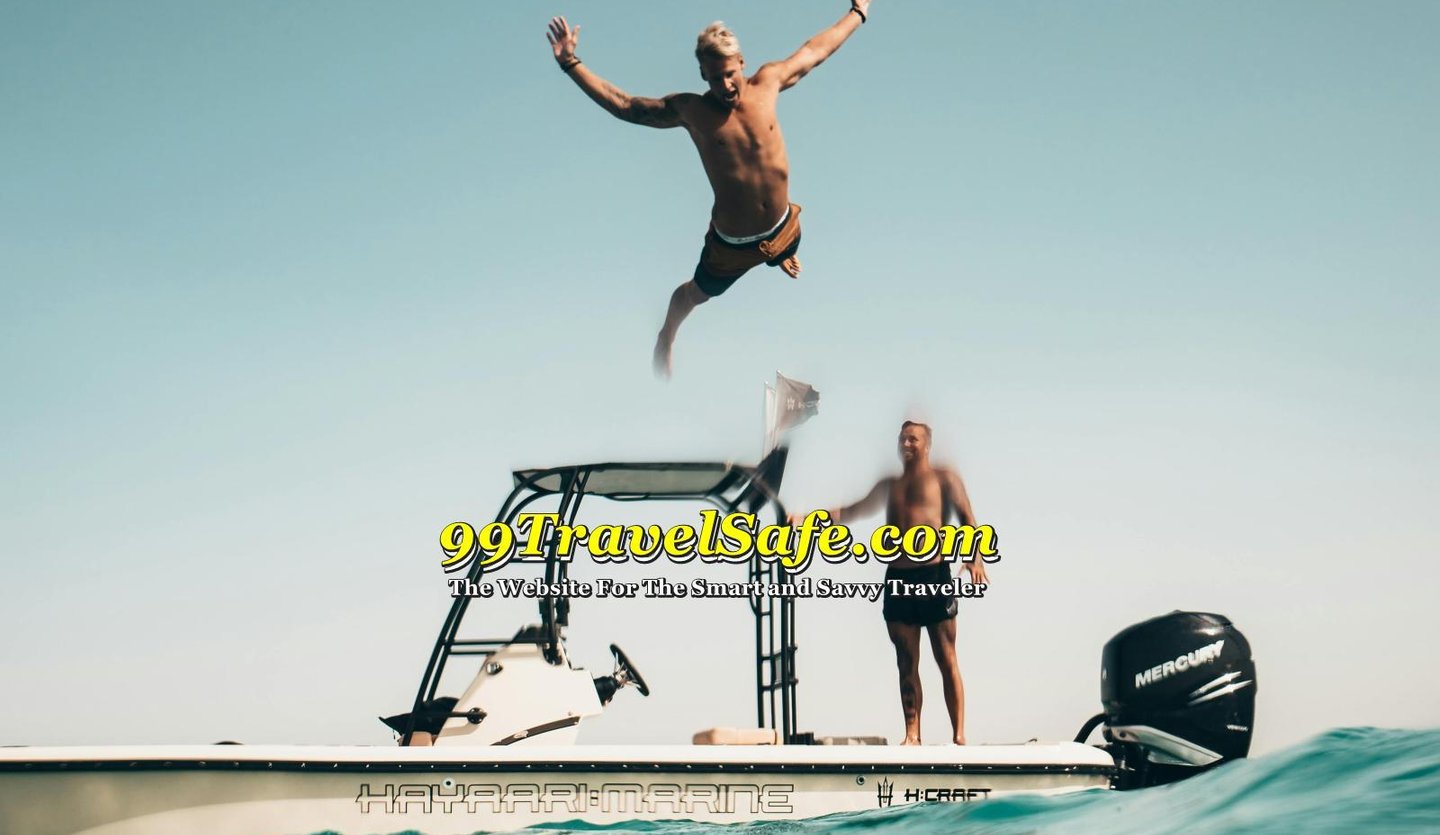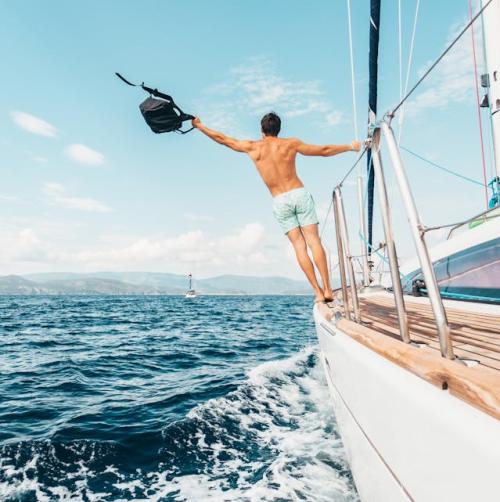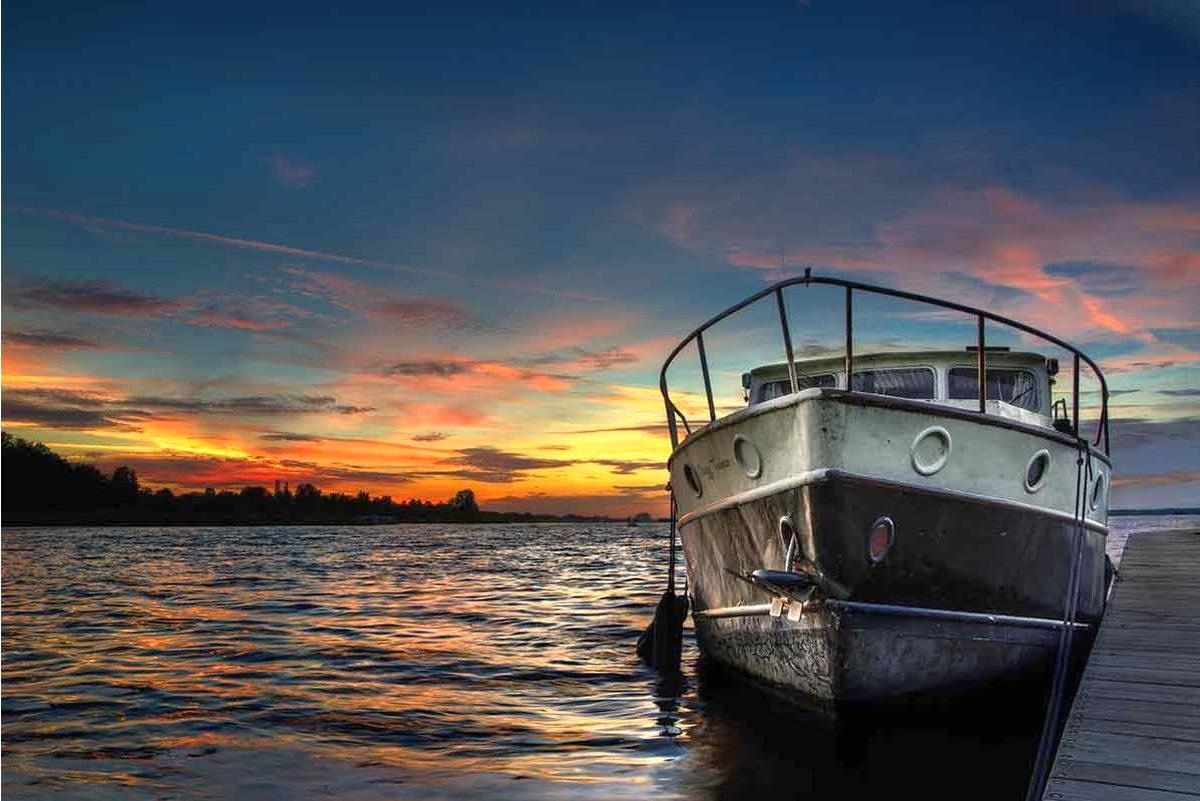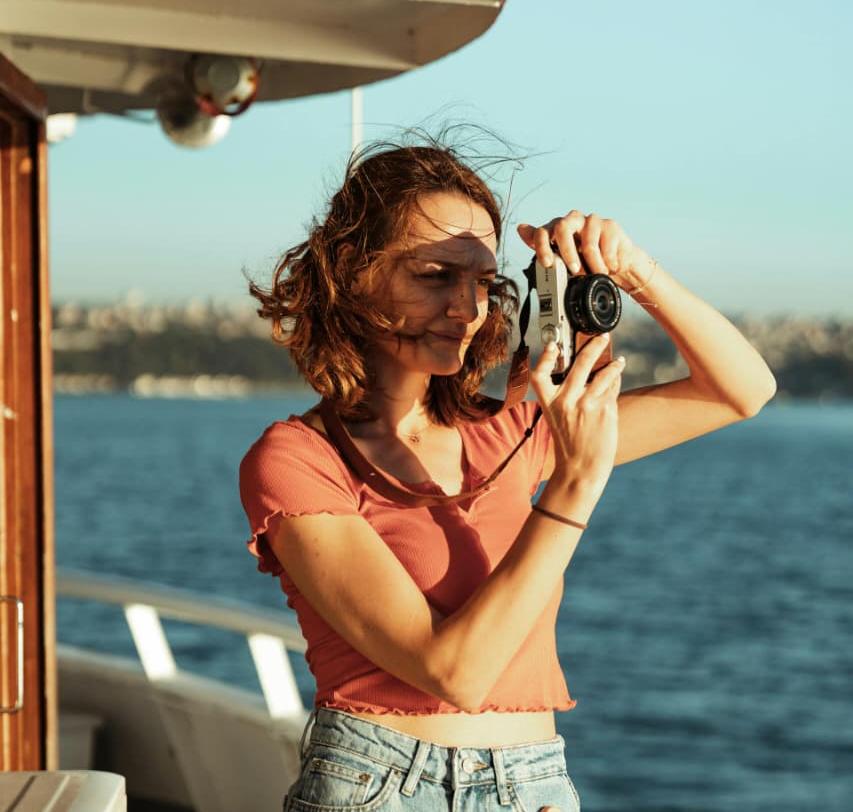

99TravelSafe.com
The Website For The Smart and Savvy Traveler
51 – Boats and Boating Safety!


Related Pages - Please Also See;
Boats and Boating Safety!


LEARN to swim!
Use Life jackets for yourself and your passengers when boating and fishing!
Find a boating course in your area, these courses should teach about navigation rules, emergency procedures and the effects of wind, water conditions, and weather.
Watch the weather: Know local weather conditions and prepare for electrical storms. Watch local news programs.
Stop boating as soon as you see or hear a storm!
The operator should confirm that a vessel is in top operating condition and that there are no tripping hazards or sharp edges exposed.
The vessel should be free of fire hazards and have clean bilges.
Keep the load low and evenly distributed. Do NOT exceed the capacity!
To anchor, bring the bow into the wind or current and put the engine in neutral. When the vessel comes to a stop, lower, not throw, the anchor over the bow. The anchor line should be 5 to 7 times the depth of the water.
Do not anchor by the stern!


Fill portable tanks off the vessel. Close all hatches and other openings before fueling. Extinguish smoking materials. Turn off engines and all electrical equipment, radios, stoves and other appliances.
Wipe up any spilled fuel immediately. Open all hatches to air out the vessel. Run the blower for at least four minutes, and then check the bilges for fuel vapors before starting the engine.
Never start the engine until all traces of fuel vapors are eliminated. Your nose is the best-known vapor detector.
Practice the "One-Third Rule" by using one-third of the fuel going out, one-third to get back and one-third in reserve.
Do not use automotive parts to replace such items as starters, distributors, alternators, generators, carburetors, fuel pumps, etc. because they are not ignition-protected and could cause a fire or explosion.
Check the weather reports before leaving shore and remain watchful for signs of bad weather. Listen to the radio. If a Small Craft Advisory is posted, get in to shore immediately as the winds are or will be too high to operate your vessel safely.
Tell a responsible friend or relative where you are going and when you plan to return. Make sure they have a complete description of your vessel and other information that will make identification of your vessel easier should the need arise. Always contact the person you left your float plan with upon your return.
Many hunters and anglers do not think of themselves as boaters but use semi-v hull vessels or canoes to pursue their sports. These boats tend to be unstable and easily capsize. Capsizing, sinking and falls overboard account for 70% of boating fatalities and these facts mean you must have a greater awareness of the boat's limitations and the skill and knowledge to overcome them.
Standing in a small boat raises the center of gravity, often to the point of capsizing. Standing for any reason or even changing position in a small boat can be dangerous, as is sitting on the gunwales or seat backs. A wave or sudden turn may cause a fall overboard or capsizing because of the raised center of gravity.
It is common belief that someone dressed in heavy clothing or waders will sink immediately if they fall overboard. This is not true. Air trapped in clothing provides considerable flotation, and bending at the knees will trap air in waders, providing additional flotation.
To stay afloat, remain calm, do NOT thrash about or try to remove clothing or footwear. This leads to exhaustion and increases the loss of air that keeps you afloat. Keep your knees bent, float on your back and paddle slowly to safety.
Sudden immersion in cold water can induce rapid, uncontrolled breathing, cardiac arrest, and other life-threatening situations which can result in drowning. Wearing a personal floatation device will help reduce this condition. If you must enter the water, button up your clothing, wear a personal floatation device, cover your head if possible and enter the water slowly.
Hypothermia (see tips 82) is the loss of body heat and immersion in water speeds the loss of heat. If your boat capsizes it will likely float on or just below the surface.
Outboard powered vessels built after 1978 are designed to support you even if full of water or capsized.
To reduce the effects of hypothermia get in or on the boat.
Try to get as much of your body out of the water as possible. If you can't get in the boat a Personal Floatation Device will enable you to keep your head out of the water. This is very important because about 50% of body heat is lost from the head.
It may be possible to revive a drowning victim who has been underwater for a considerable time and shows no signs of life.
Numerous documented cases exist where victims have been resuscitated with no apparent harmful effects after long immersions. Start CPR (Cardio Pulmonary Resuscitation) immediately and get the victim to the hospital as soon as possible.
Alcohol and boating don't mix. Alcohol impairs your judgment, balance, and coordination - over 50 percent of drownings resulting from boating incidents involve alcohol.
For the same reasons, it is dangerous to operate an automobile under the influence of alcohol, people should not operate a boat while drinking alcohol.
Protect your passengers from carbon monoxide. Boat engines emit carbon monoxide, an odorless — but deadly — gas. To prevent carbon monoxide poisoning, keep passengers away from the engine, both in the boat and in the water. If your boat has a gas engine to generate electricity — to run an air conditioner in a cabin, for example — make sure there's proper ventilation, and install carbon monoxide detectors in sleeping and living quarters.
If there is a fire you must act immediately. Having a fully charged fire extinguisher on hand is vital. Take the time to make sure that you and those who boat with you regularly know and understand exactly how to use the fire extinguisher. To prevent boat fires take the following precautions: clean bilges often and maintain proper gear stowage; make sure short-tie cables are properly connected; place oily rags in covered trash cans or dispose of them on shore; and store propane fuel for stoves in a secure area.
